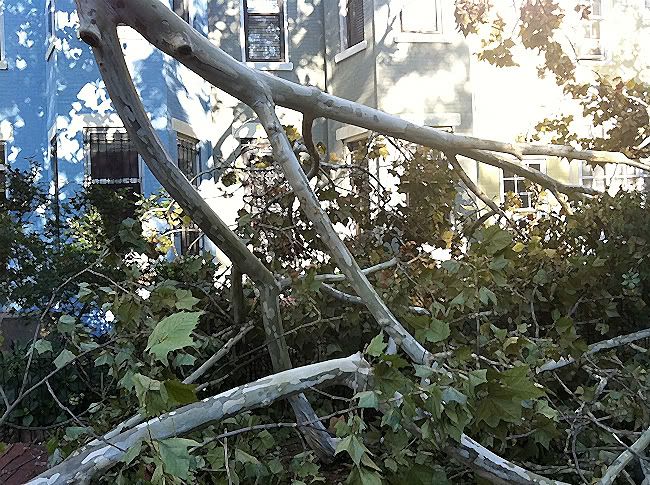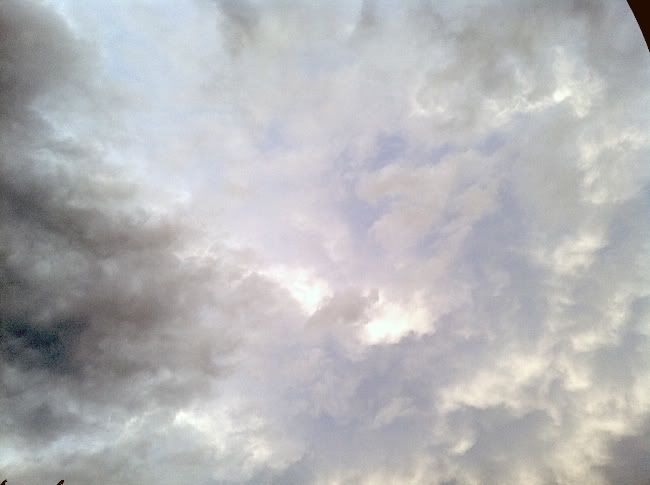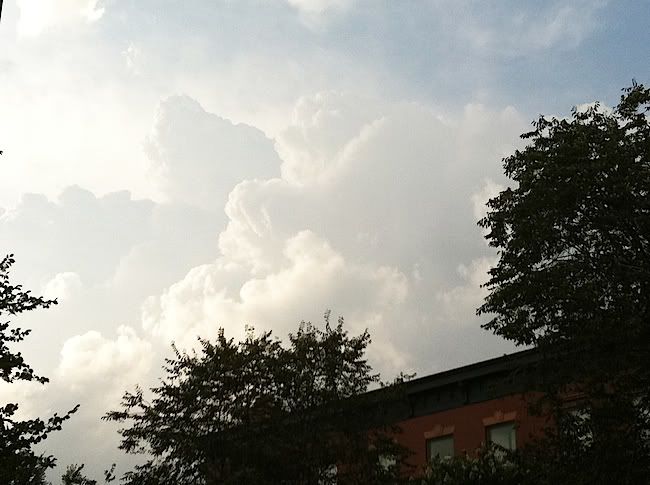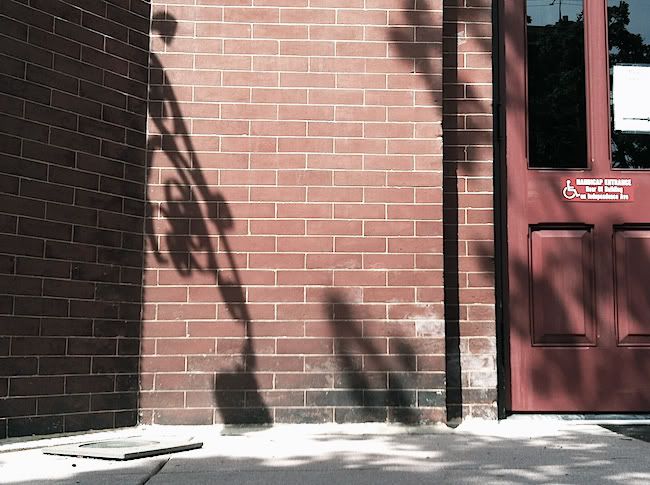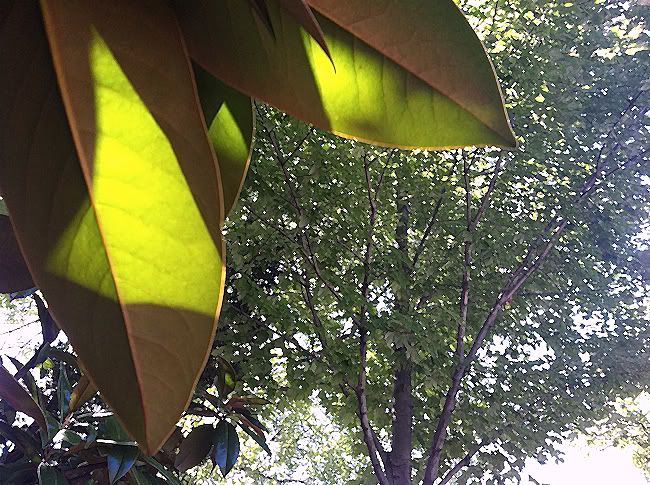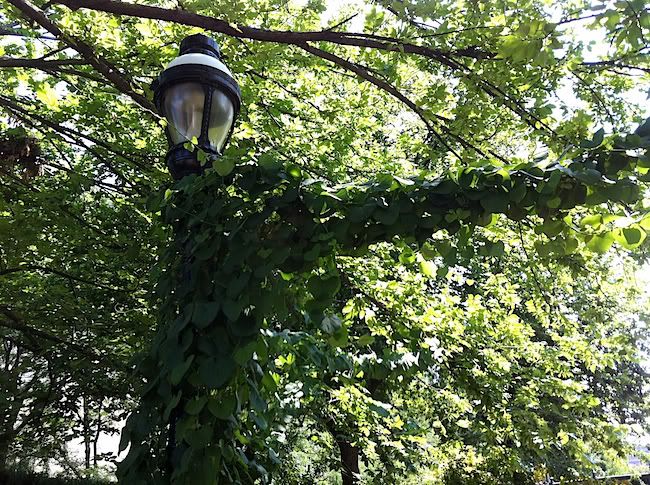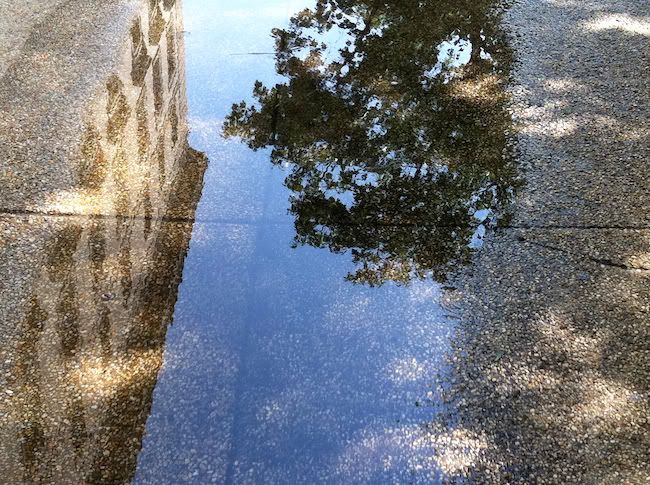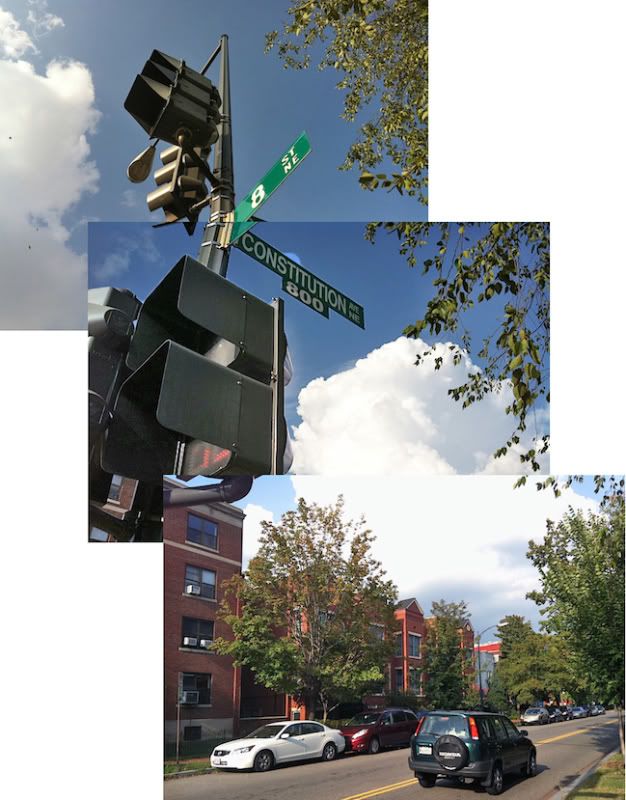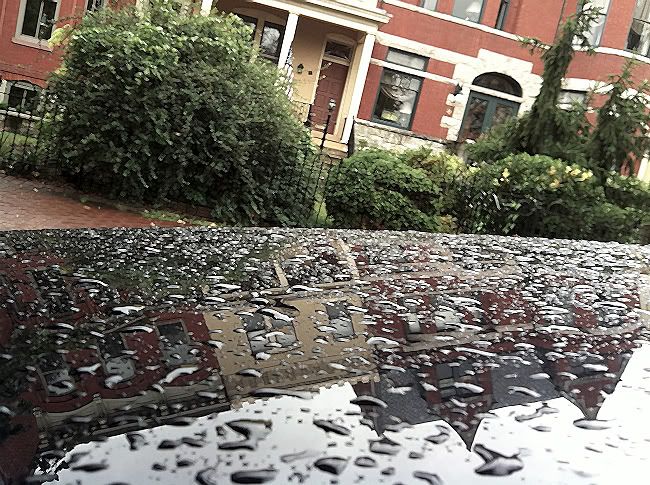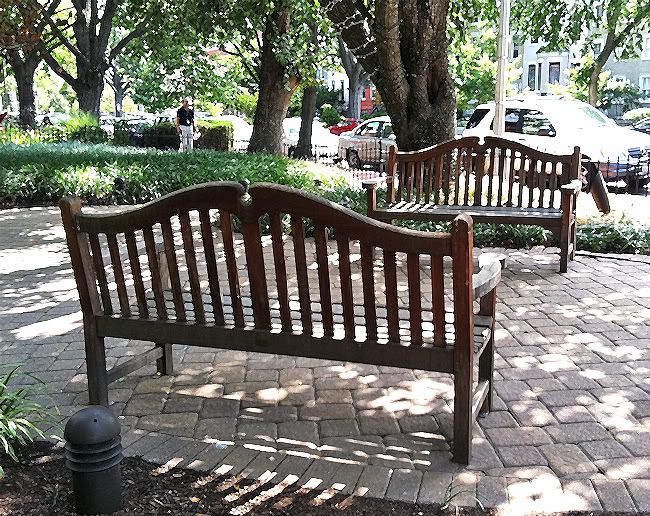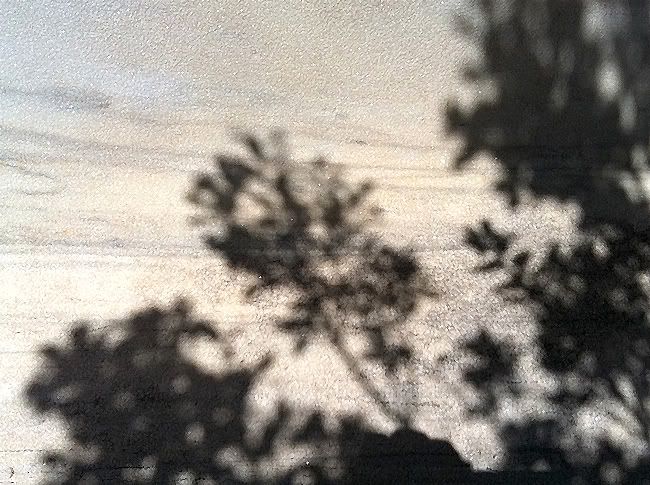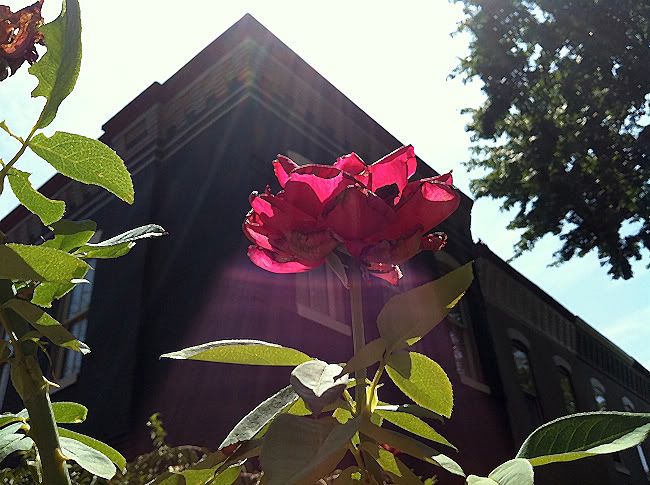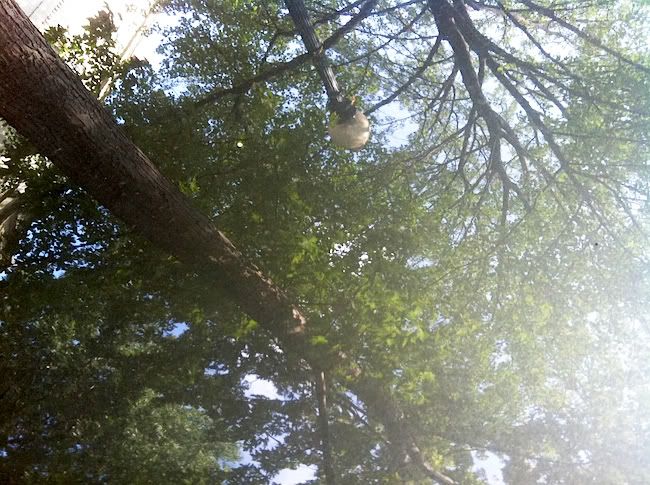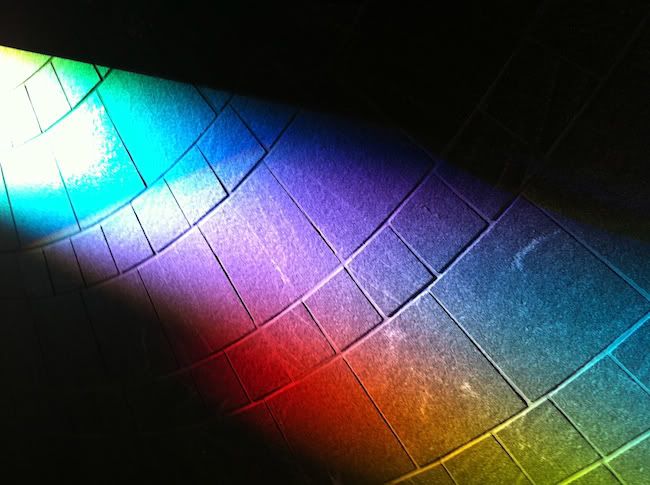 Rainbows at the American Indian museum. They were spectacular yesterday in the bright sunshine.
Rainbows at the American Indian museum. They were spectacular yesterday in the bright sunshine.
What is safety? Is it money in the bank, a sturdy house, a car that's paid for? Is it a pantry full of canned food, flashlight batteries and bottled water? Is there safety to be found way out in the country, in the suburbs, or among the throngs of people who live in the cities?
Are we safe from the threat of rain when we carry an umbrella, or from bodily harm if we wear a bicycle helmet? When we eat only well cooked food? When we follow all the rules about how often to exercise, what to eat, what to drink?
You can run yourself ragged trying to be safe. It's an exhausting pursuit since there really is no such thing as safety. Well, there isn't. C'mon. A big earthquake could strike even in a place where that never happens. Floods, hurricanes, volcanic eruptions, all manner of natural disasters can not be predicted. Nor is it possible to always avoid accidents on a smaller scale that happen every day: a twisted ankle, a fender bender that results in whiplash, a smashed thumb from a poorly aimed hammer.
Don't even get me started on how many things can go wrong within the human body. After many years of studying the human condition, I'm truly amazed that so many of us live long, healthy, balanced lives. Wow.
Far better than the wild goose chase involved in seeking safe haven from the unpredictable nature of life lived in an ever-changing world, it makes a lot more sense to practice mindfulness, therefore perhaps avoiding the twisted ankle or fender bender. Perhaps! It doesn't always work. Also it makes sense to develop qualities like resilience and resourcefulness, so that if or when something happens, we have some practice figuring out how to address what's right in front of us.
Yes I have fresh batteries for my flashlights, yes I look both ways - twice in DC - before I cross the street. When I'm on my bike I am especially vigilant. But I don't for one second believe that I'm safe, only that if something happens, I will have the courage, groundedness and resourcefulness to deal with it.
EVERYONE should be certified in first aid. The Red Cross offers excellent classes. Everyone should have a first aid kit and know how to use what's in it. In addition to the stuff you'll find in every first aid kit, add a bottle of Benadryl and an anti-inflammatory of your choice. I mention this here because I learned the hard way what was missing from my first aid kit when I went into anaphylaxis a few years ago. Benadryl is powerful medicine!
There is no safety, really there isn't. But we are smart, resourceful and we have opposable thumbs as well as compassionate hearts. We have made our way through all manner of disasters small and large on this planet for a long time; we are enormously successful as a species. Fear not, y'all. We are capable, powerful animals. Be confident, learn a few emergency skills. Then carry on, yes? I say yes. L'chaim and shalom.
Below, one of my favorite TED talks.


